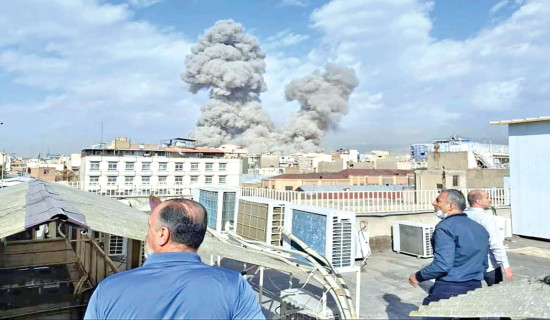- Sunday, 1 March 2026
Election Management
Transparent and fair elections are the essence of democracy. Starting the latter half of the 20th century, the world had seen remarkable transition of undemocratic governance to democratic ones. But the reputed international institutions monitoring the global democratic trends have observed a troubling trend over the last two decades: decline in democracy. And factors, such as bad governance, persistent economic hardships, failure to address the emerging challenges posed by cutting-edge technology as well as climate change, shifts in geopolitics, rise of populism, among others, have been blamed for the decline.
In some countries, democratic leaders themselves have become democracy’s worst enemies. Significant damages have been done to democratic values and norms. People's trust in public institutions have hit rock-bottom. When democracy fails to deliver, people get disillusioned with it. Leaders have been accused of forsaking principles, integrity and ethics in their pursuit of power. Rampant corruptions and eroding ethical values have weakened democratic institutions. Against these backdrops, calls have been growing louder and louder to make democracy resilient, robust and functional as well to better manage the elections to durably retain public's faith in democracy and to keep its enemies at arm's length.
Amid this, 12th conference of the Forum of the Election Management Bodies of South Asia (FEMBoSA) concluded in Kathmandu on Thurday. Hosted by the Election Commission of Nepal, the two-day conference is expected to yield valuable insights and reinforce the region's collective efforts to ensure free, fair, and transparent elections in line with the principles of democracy that South Asia holds. The FEMBoSA, established in 2010 with the membership of all the South Asian countries, has the objectives of enhancing mutual cooperation, capacity building and sharing experiences for managing elections with integrity. The conference is being attended by chief election commissioners, election commissioners and other delegates from the election management bodies of South Asia.
The ongoing conference centres on the theme of "Emerging Trends in Elections: Climate, Social Media and Elections." Addressing the event, Prime Minister KP Sharma Oli highlighted the need to foster a future where every election truly reflects the will of the people, underscoring the need to make joint efforts to facilitate the election process as per the wishes and expectations of people at home and abroad amid the opportunities and challenges of migration, climate change and social media and growing influence of artificial intelligence in electoral processes. He also emphasised that elections reflect will and aspirations of the people, making it the duty of every state to uphold the right to vote.
The Prime Minister's emphasis on ravaging impacts of climate change on every aspect of life including election and call for strategies to protect electoral integrity even in the face of environmental adversities shows Nepal's unwavering commitment to holding free and fair elections to fulfil the aspirations of the people. He also dwelt on the complexities of migration, which affects electoral rolls and voter identification, particularly in a region characterised by both outbound and inbound migration. The Prime Minister further underscored the double-edged nature of social media and artificial intelligence, which offer not only offer opportunities for voter engagement but also pose significant risks, such as the spread of misinformation and the erosion of trust in democratic institutions. These remarks speak of Nepal's unflinching commitment to democracy in its truest sense.
















